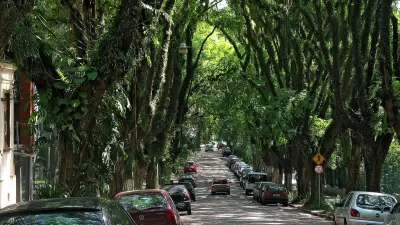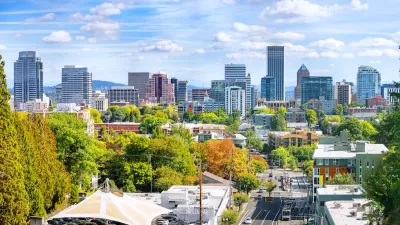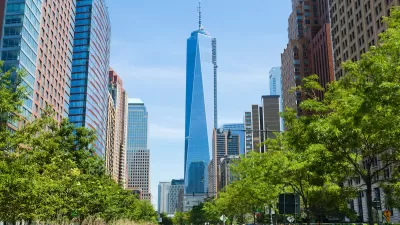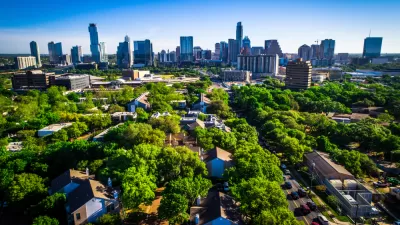Most of the reasons street trees are sometimes unpopular with residents are either untrue or can be mitigated.

There's a surprising amount of resistance to the ideas of street trees planted in sidewalks, according to an article by Catalina Jaramillo:
Trees aren’t generally controversial. They usually look nice, they provide shade and improve the air and water quality. Scientists say they even make people happier.
But when it comes to planting a tree on the street, many Philadelphians say — nuh uh, not in my sidewalk.
The reasoning for this anti-tree vitriol is fairly easily debunked, according to Jaramillo.
The article walks through a series of myths about street trees, providing evidence to the contrary:
- MYTH 1: ‘There’s few trees in lower-income neighborhoods because residents don’t want them’
- MYTH 2: ‘Trees get into pipes’
- MYTH 3: ‘Tree planting and maintenance is prohibitively expensive’
- MYTH 4: ‘Trees destroy sidewalks’
As noted by Jaramillo, sometimes there are risks and liabilities associated with street trees, and sometimes the trees chosen for planting on streets are the wrong trees for the job. But still, trees can and should be far more beneficial than harmful, and it's far more worth the effort of having trees than not to have any trees at all.
FULL STORY: Not in my sidewalk: Debunking Philly tree myths

Planetizen Federal Action Tracker
A weekly monitor of how Trump’s orders and actions are impacting planners and planning in America.

Map: Where Senate Republicans Want to Sell Your Public Lands
For public land advocates, the Senate Republicans’ proposal to sell millions of acres of public land in the West is “the biggest fight of their careers.”

Restaurant Patios Were a Pandemic Win — Why Were They so Hard to Keep?
Social distancing requirements and changes in travel patterns prompted cities to pilot new uses for street and sidewalk space. Then it got complicated.

Platform Pilsner: Vancouver Transit Agency Releases... a Beer?
TransLink will receive a portion of every sale of the four-pack.

Toronto Weighs Cheaper Transit, Parking Hikes for Major Events
Special event rates would take effect during large festivals, sports games and concerts to ‘discourage driving, manage congestion and free up space for transit.”

Berlin to Consider Car-Free Zone Larger Than Manhattan
The area bound by the 22-mile Ringbahn would still allow 12 uses of a private automobile per year per person, and several other exemptions.
Urban Design for Planners 1: Software Tools
This six-course series explores essential urban design concepts using open source software and equips planners with the tools they need to participate fully in the urban design process.
Planning for Universal Design
Learn the tools for implementing Universal Design in planning regulations.
Heyer Gruel & Associates PA
JM Goldson LLC
Custer County Colorado
City of Camden Redevelopment Agency
City of Astoria
Transportation Research & Education Center (TREC) at Portland State University
Camden Redevelopment Agency
City of Claremont
Municipality of Princeton (NJ)





























